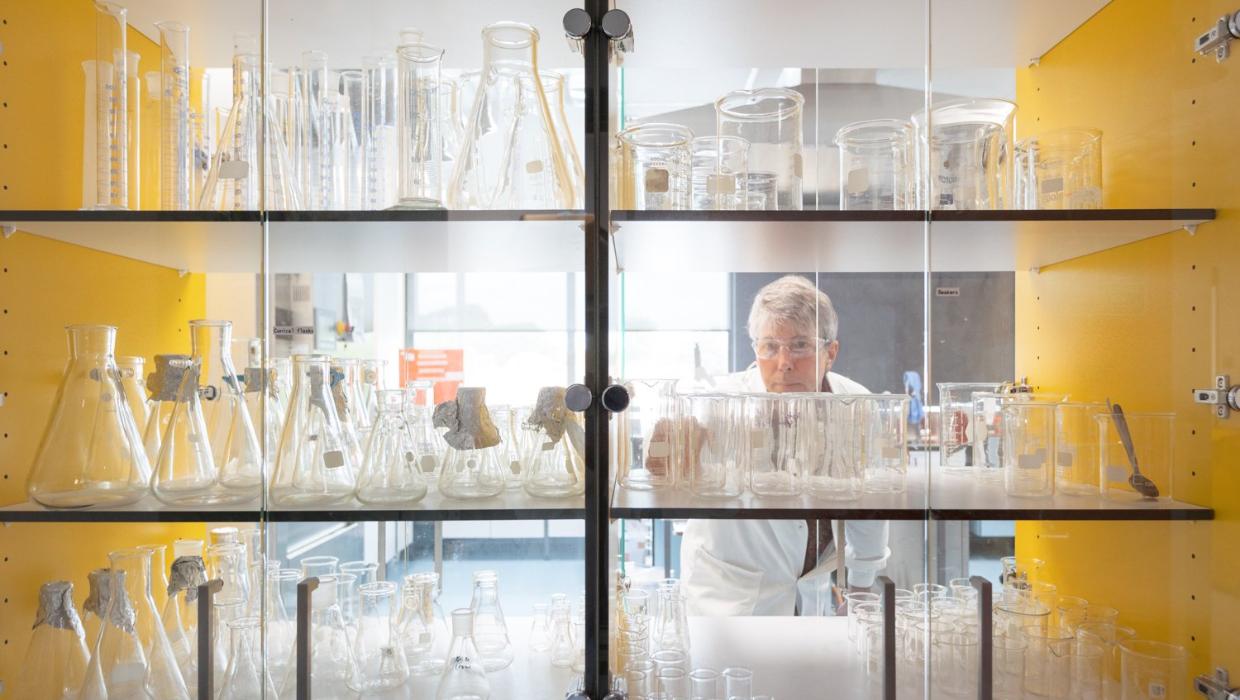Science
New Zealand Secures $20 Million for Innovative Bioeconomy Research

The Bioeconomy Science Institute has received over $20 million in funding from New Zealand’s Endeavour Fund to support two innovative research programmes aimed at transforming the country’s food, biotech, and horticultural sectors. This significant investment highlights the government’s commitment to advancing scientific research to enhance economic growth and sustainability.
Groundbreaking Initiatives to Enhance Export Potential
The first programme, titled Super-Storing: Extending the Life of NZ’s Perishable Fruits, has been allocated $10.2 million. Led by Associate Professor Robert Schaffer and Dr. Rosie Schröder from the Bioeconomy Science Institute, this initiative seeks to replicate the extended storage life of kiwifruit in other perishable fruits, such as summer fruits and berries. By leveraging advanced gene technologies, the researchers aim to facilitate the storage and transportation of these crops by sea to distant markets, including Asia and Europe.
The economic implications of this research are substantial. Currently, New Zealand’s fresh fruit exports generate $3.5 billion annually, primarily from kiwifruit and apples. The successful implementation of this project could diversify the horticultural sector and help the government achieve its goal of increasing export value from $7 billion to $12 billion per year. It is projected to contribute over $600 million in additional domestic economic activity, reduce food waste, and minimize emissions by substituting air freight with sea freight.
“This work will directly benefit growers, extend harvest windows, and build resilience against extreme weather,” said Schaffer. “It’s about unlocking the full potential of New Zealand’s horticultural diversity.”
Transforming Forestry Waste into Valuable Resources
The second initiative, Turning Pine Waste into Premium Proteins, is a five-year project with funding of $10.4 million. Spearheaded by Dr. David Hooks and Dr. Scott Knowles, this programme aims to convert pine forestry residues, which are often discarded, into high-value proteins through a process known as Precision Fermentation (PF).
Using novel chemoenzymatic methods, the initiative will transform softwood residues into fermentation feedstocks. These feedstocks will then be utilized to cultivate engineered yeast strains capable of producing specialty proteins, such as osteopontin and casozepine, which replicate the nutritional benefits of traditional animal-derived ingredients.
“This is more than a research programme,” Dr. Hooks noted. “It’s a blueprint for how New Zealand can lead in the next generation of food and biotech innovation. This is about creating value from what we already have. New Zealand has abundant bioresources and world-class science. Precision Fermentation allows us to connect the two.”
Dr. Knowles added that converting forestry residues into feedstocks creates a new pathway for sustainable protein production that aligns with global efforts to develop climate-resilient food systems. The research is expected to yield several innovations, including novel enzymes for converting lignocellulosic biomass into fermentable sugars and digital twin modelling to optimize PF processes.
Strengthening Research Capabilities
The establishment of the Bioeconomy Science Institute represents a significant restructuring of New Zealand’s research landscape. It was formed by merging four prominent organizations: AgResearch, Manaaki Whenua – Landcare Research, Plant & Food Research, and Scion. This consolidation aims to enhance research collaboration and maximize the impact of scientific advancements on the country’s economy.
During a recent visit to the Lincoln campus, Hon Shane Reti, Minister of Science, Innovation and Technology, unveiled the new visual identity of the Bioeconomy Science Institute. “This is an exciting step in sharing our new organisation with the outside world,” said Mark Piper, Transition Chief Executive. “As we start our journey as Bioeconomy Science Institute, it’s great to be able to share this new visual identity which speaks to the organisation that we are building, for the benefit of Aotearoa New Zealand and the world.”
In addition to the funding for the two research initiatives, Minister Reti announced $6.5 million in new industry funding to develop methods for reducing methane emissions from grazing livestock, showcasing the government’s comprehensive approach to addressing environmental challenges through innovative research. The minister also witnessed the signing of a licensing deal with Nelson-based Seaweave to commercialise aquaculture monitoring technology, further highlighting New Zealand’s commitment to advancing sustainable practices across various sectors.
-

 World3 months ago
World3 months agoTest Your Knowledge: Take the Herald’s Afternoon Quiz Today
-

 Sports3 months ago
Sports3 months agoPM Faces Backlash from Fans During Netball Trophy Ceremony
-

 Lifestyle3 months ago
Lifestyle3 months agoDunedin Designers Win Top Award at Hokonui Fashion Event
-

 Sports3 months ago
Sports3 months agoLiam Lawson Launches New Era for Racing Bulls with Strong Start
-

 Lifestyle3 months ago
Lifestyle3 months agoDisney Fan Reveals Dress Code Tips for Park Visitors
-

 Health3 months ago
Health3 months agoWalking Faster Offers Major Health Benefits for Older Adults
-

 World3 months ago
World3 months agoCoalition Forms to Preserve Māori Wards in Hawke’s Bay
-

 Politics3 months ago
Politics3 months agoScots Rally with Humor and Music to Protest Trump’s Visit
-

 Top Stories3 months ago
Top Stories3 months agoUK and India Finalize Trade Deal to Boost Economic Ties
-

 Entertainment3 months ago
Entertainment3 months agoExperience the Excitement of ‘Chief of War’ in Oʻahu
-

 World3 months ago
World3 months agoHuntly Begins Water Pipe Flushing to Resolve Brown Water Issue
-

 Science3 months ago
Science3 months agoNew Interactive Map Reveals Wairarapa Valley’s Geological Secrets









